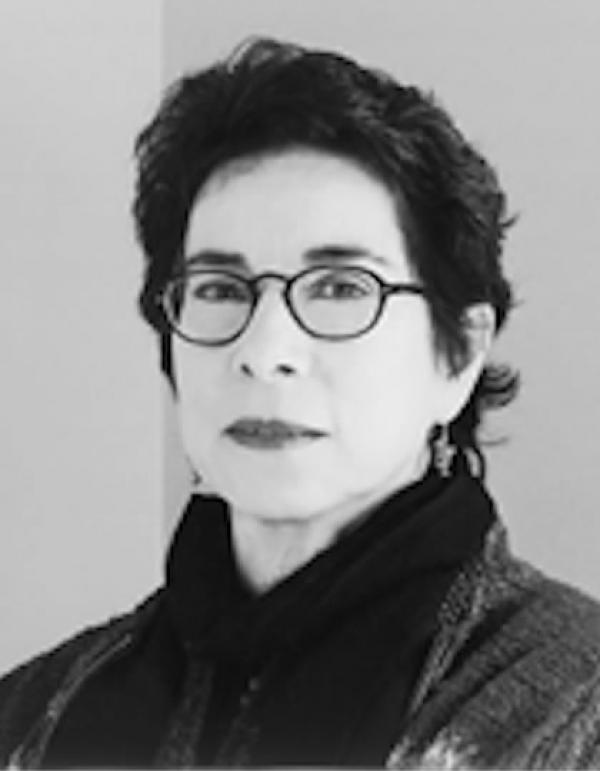Laura Furman

Photo by Laura Pickett Calfee
Bio
Laura Furman was born in Brooklyn in 1945 and educated in the New York public school system and at Bennington College. Her first story was published in The New Yorker in 1976, and since then her fiction has appeared in the Yale Review, Redbook, Southwest Review, Ploughshares, Antioch Review, Prairie Schooner, American Scholar, Subtropics, and other magazines. Her essays and journalism have appeared in Preservation, Mirabella, House & Garden, Saturday Night (Toronto), Cite magazine, and Texas Studies in Language and Literature. She has received a Guggenheim Fellowship, the Dobie Paisano Fellowship, and the Jesse Jones Award of the Texas Institute of Letters. Furman is the founding editor of American Short Fiction and Series Editor of The O.Henry Prize Stories. Currently, she is Professor of English at the University of Texas at Austin, where she lives with her husband, Joel Warren Barna, and their son, Solomon.
Author's Statement
This Fellowship gives me time to work on a collection of stories I've been working on for years. No gift could be better than time to write.
Like many writers, I teach, in my case at a large public university. My students bolster my belief in the power of literature to help us become more compassionate individuals and to reveal new possibilities.
But sometimes when I teach, especially when I teach the work of my contemporaries, I feel homesick, for I miss my work. Even if I spend the hours before class engaged in my own writing, I still miss my work. When I write, I am most purely engaged and concentrated, and most at home in myself. The more I work, the more patient I become with the slow evolution of my fiction and the more aware of the world I'm making with my words.
The NEA Fellowship gives me time to live more fully in my work, without interruption, without pulls in other directions. All art works within time, no matter if the art is music, dance, prose, or poetry, and so do all artists. Time pushes on artists; we know our time is finite.
The Fellowship comes from the people of the United States, and I'm grateful to them for the gift of time.
From the short story "Here It Was, November"
It is problematic to seek in literature - drafts or finished work - the facts of a writer's life. It took nothing from Marian's skill to say that she used her life in all her work, to assert that there was nowhere in her fiction an example of an event wholly invented. In my nearly completed book, I resisted the temptation to use the life as a map to the work or the work as a map to the life, but now I read the stories in the notebook with the iciness one feels on hearing confirmed a dreadful truth one has unconsciously suspected.
Often I wished that Marian had acted more nobly in her personal relationships, but nothing she did sickened me until she sought out Dorothea and persuaded her daughter to see her through her last days. Marian's final act was the one I'd struggled with, trying to maintain moral neutrality so that I could report the facts, leaving judgment to others.
Once I met Dorothea, I became almost reconciled to Marian's late-life claiming of her daughter. However self-serving it was of Marian, however calculated to gain a safe nest and a devoted nurse while she was dying, for Dorothea the reunion with her birth mother and the chance to care for her was the fulfillment of a life's wish. Before Marian, Dorothea had been troubled and lonely, without a sense of her place in the world, and she attributed this, despite her love for her adoptive parents and theirs for her, to her missing mother. She was nearly a recluse, working by day at a state office job, returning to her small, much-loved house and garden in the evening. Her parents had been her closest friends and now they were gone. Her cats, her garden, occasional forays to the Four Corners or nearby pueblos - these made up Dorothea's quiet life. She confessed to me that, before Marian, she fretted that she didn't do enough either in or for the world. But then Marian appeared, Dorothea's life suddenly had meaning; she became Marian Foster Todd's daughter, her loving nurse, and, finally, her grateful heir. Dorothea's debt to the world was paid.
Work dominated Marian's life, her process of procrastination and avoidance followed by total relinquishment to the work, and her constant struggle to meet her own high standards and her idea of herself. In the end, though, Marian's art was not enough. Marian had outlived many of her friends and all of her friendships. She hated her few living relatives. Seeking out Dorothea, finding her worthy, causing dramatic havoc in her daughter's life, appealed to Marian and gave the degradation of her illness and death a pleasing narrative shape.
It didn't seem so terrible. Awaiting my own bad news, I had envied Marian. At the end of Marian's life, when she needed a daughter, she inserted herself into Dorothea's life, pushing aside the couple, now dead, who had nurtured Dorothea, replacing them with her glorious if dying self. Still, my biographer's abhorrence of literal congruence between life and work didn't mean that I couldn't connect the dots. In the cool, concentrated air of the reading room, my sad confidence grew that Marian was not Dorothea's mother. The stories in the notebook would break Dorothea's heart.

